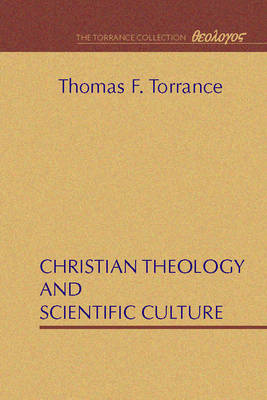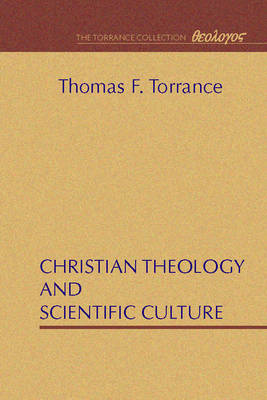
- Retrait gratuit dans votre magasin Club
- 7.000.000 titres dans notre catalogue
- Payer en toute sécurité
- Toujours un magasin près de chez vous
- Retrait gratuit dans votre magasin Club
- 7.000.0000 titres dans notre catalogue
- Payer en toute sécurité
- Toujours un magasin près de chez vous
41,95 €
+ 83 points
Description
How do we react to the claim that physics must now be regarded as one of the liberal arts, for in its description of the universe it sets the stage for the drama of human life? If modern science has now become the dominant culture, how does Christianity look within it? What difference does the Christian idea of the contingence of nature make to science today? What difference does it make for Christian thought and culture to move away from the old idea of the world as a closed mechanical system of cause and effect into the new idea of the world as an open dynamic system configured by the behavior of light, the fastest messenger in the universe? These are some of the questions discussed in the light of James Clerk Maxwell's discoveries of the mathematical properties of light, and of Albert Einstein's generalization of the new understanding of light for a radically new and exciting view of nature that has made space travel possible and enabled us to trace the expansion of the universe back to conditions near its beginning. This is not a defensive book about science and religion in the usual vein. It is concerned rather with the deep mutual relation and respect of Christian and scientific thought for each other, and shows how this relationship throws new light upon basic Christian doctrines. This volume also warns against the dangers of a reactionary retreat from the rigors of scientific thought into fuzzy mythological interpretations of the incarnation, and calls for a deeper appreciation of the Nicene Creed upon which all Christendom rests.
Spécifications
Parties prenantes
- Auteur(s) :
- Editeur:
Contenu
- Nombre de pages :
- 152
- Langue:
- Anglais
Caractéristiques
- EAN:
- 9781579101305
- Date de parution :
- 30-06-98
- Format:
- Livre broché
- Format numérique:
- Trade paperback (VS)
- Dimensions :
- 143 mm x 207 mm
- Poids :
- 199 g

Les avis
Nous publions uniquement les avis qui respectent les conditions requises. Consultez nos conditions pour les avis.






